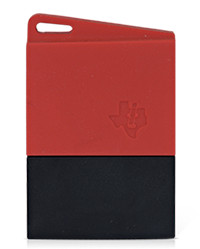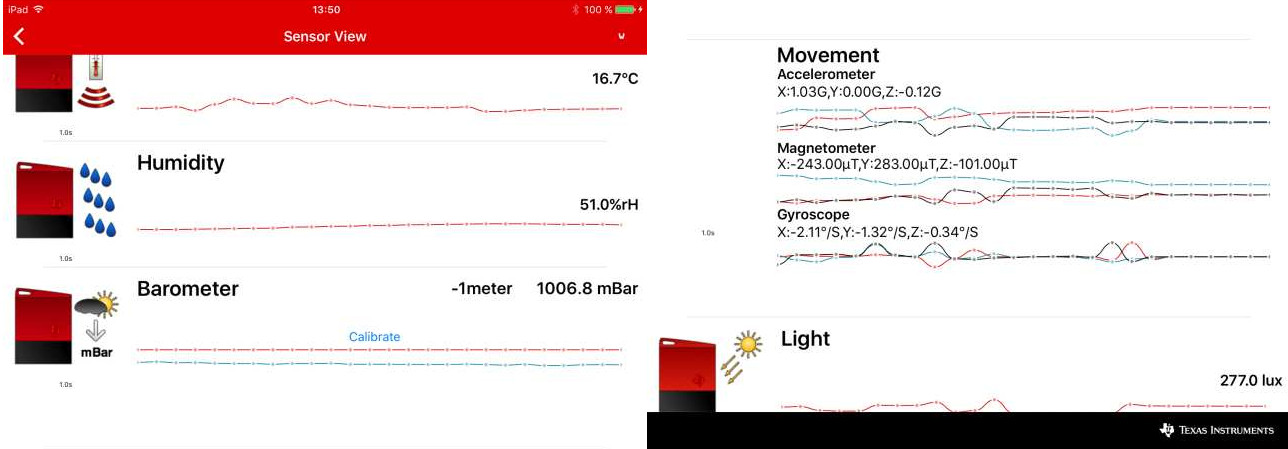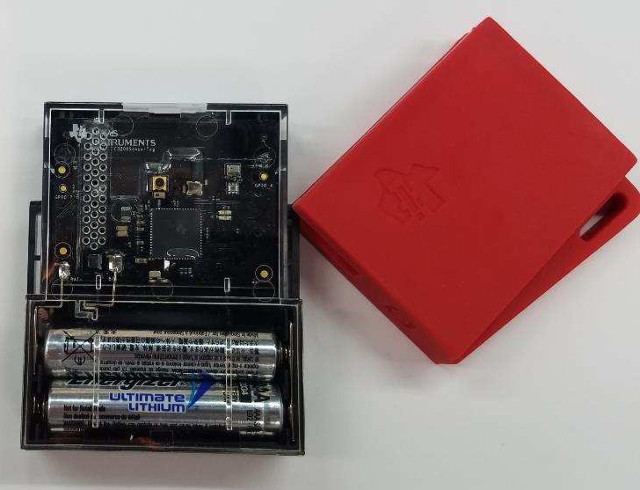Texas Instruments launched SensorTag in 2013, and at the time there was just a Bluetooth 4.0 LE version with 6 different sensors. I bought one for $25 at the time, and tried it with a Raspberry Pi board and a BLE USB dongle. Since then, the company has launched a new multi standard model (CC2650STK) supporting Buetooth low energy, 6LoWPAN, and ZigBee, and has just started to take orders for CC3200 WiFi SensorTag for $39.99, which seems expensive in a world of $2 ESP8266 modules.
But let’s see what the kit has to offer:
- Wireless MCU – Texas Instruments CC3200 SimpleLink ARM Cortex-M4 MCU @ up to 80 MHz, with up to 256KB RAM, Hardware Crypto Engine, DMA engine
- Storage – 1 MB serial flash memory
- Connectivity – 802.11 b/g/n WiFi with on-board inverted-F antenna with RF connector for conducted testing
- Sensors – Gyroscope, accelerometer, compass, light sensor (OPT3001), humidity sensor (HDC1000), IR temperature sensor (TMP007), and pressure sensor (BMP280)
- Expansion – 20-pin DevPack SKIN connector
- Debugging – Debug and JTAG interface for flash programing
- Misc – 2x buttons, 2x LEDs, reed relay MK24, digital microphone, and a buzzer for user interaction
- Power – 2x AAA batteries good for up to 3 months (with 1 minute update interval)
So it has plenty of sensors to play with, and rather long battery life for a WiFi evaluation platform. The kit ships with one CC3200 WiFi SensorTag, two AAA batteries, and a getting started guide.

Resources includes hardware design files (schematics, PCB layout, BoM, etc..), iOS and Android apps and source code, IoT Device Monitor for Windows, Code Composer Studio, and cloud-based development tools. Note that there’s no embedded software for the Wi-Fi SensorTag, it is only a a demo platform, while you can modify cloud-based applications, you can’t modify the firmware. If you want an embedded development platform, you’d have to go with CC3200 LaunchPad board. You can still have some fun SensorTag using Android or iOS app, or connecting it to IBM Watson IoT Platform.
Visit SensorTag page for further information.

Jean-Luc started CNX Software in 2010 as a part-time endeavor, before quitting his job as a software engineering manager, and starting to write daily news, and reviews full time later in 2011.
Support CNX Software! Donate via cryptocurrencies, become a Patron on Patreon, or purchase goods on Amazon or Aliexpress





